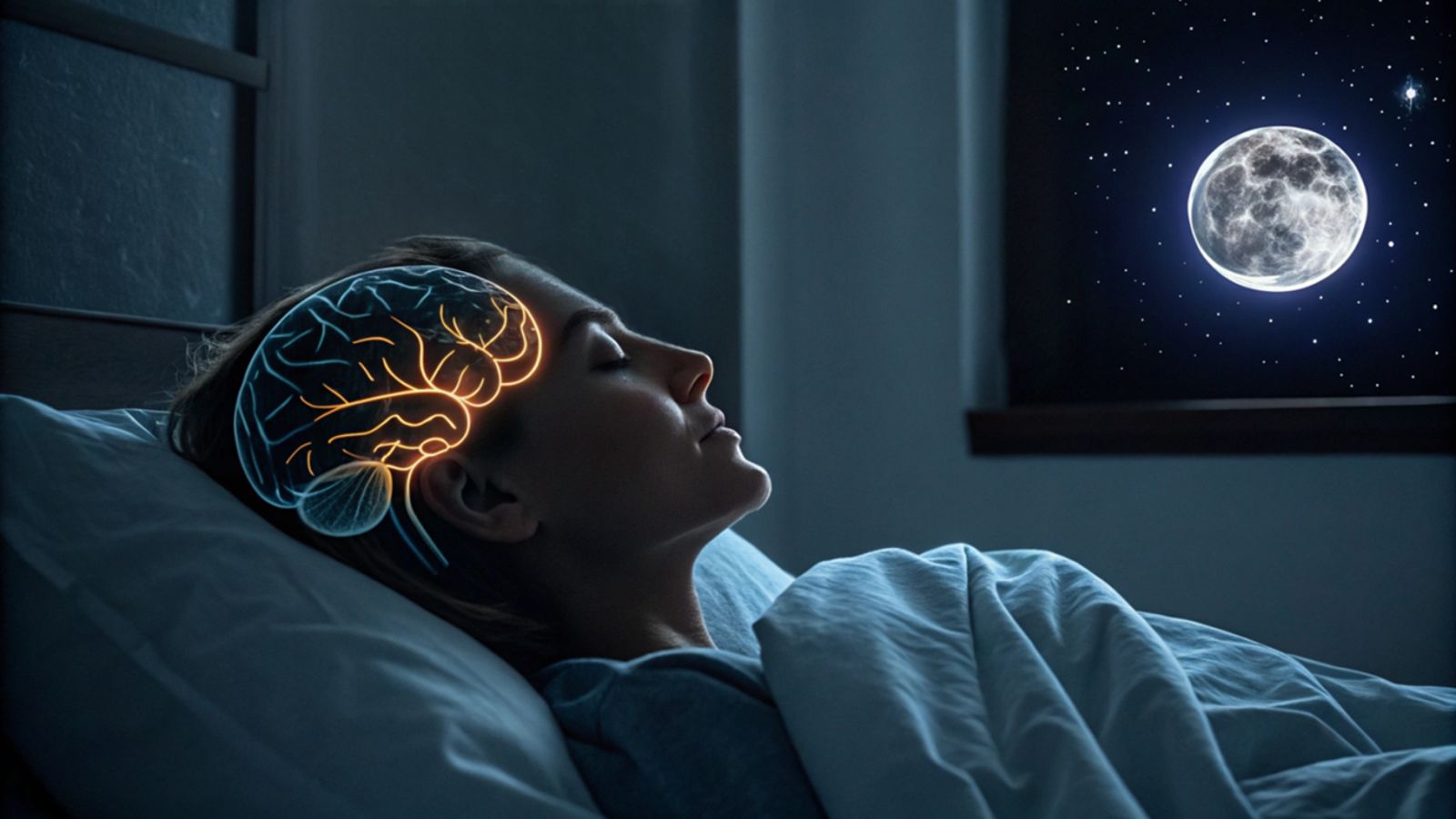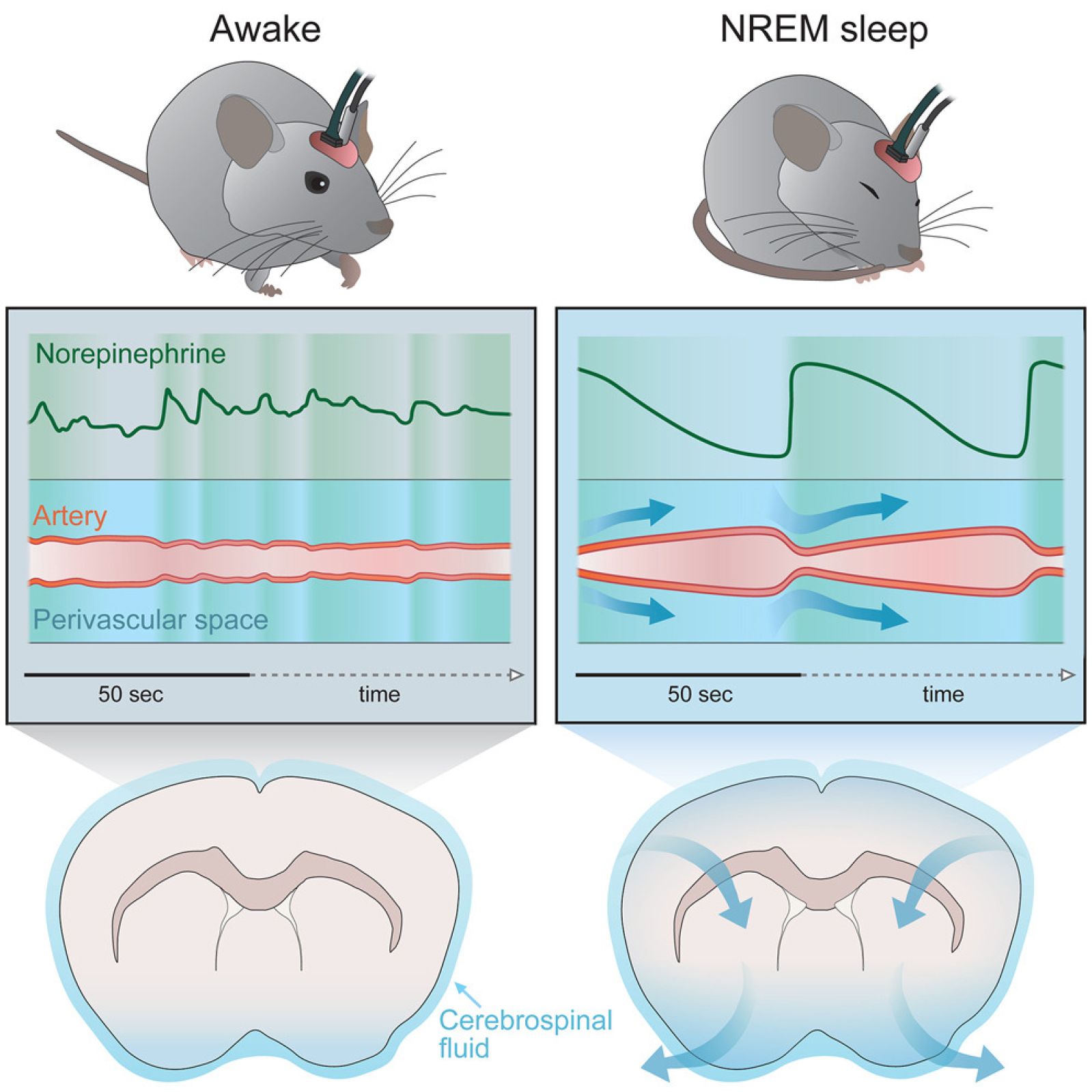Follow us on Google News (click on ☆)

This discovery, resulting from research conducted at the University of Copenhagen, sheds light on a key process: slow brain waves, orchestrated by norepinephrine, act as a pump to eliminate accumulated waste. This mechanism, mainly active during deep sleep, could explain why poor sleep increases the risk of diseases like Alzheimer's.
The glymphatic system: a brain washing machine
The brain has a cleaning system called the glymphatic system. During sleep, this system removes metabolic waste, including toxic proteins linked to neurodegenerative diseases. Without restorative sleep, this process is disrupted, affecting memory and overall health.
Researchers have long sought to understand what activates this system. Through studies on mice, they have identified a key mechanism: slow oscillations of norepinephrine, a neurotransmitter, which cause pulsations of blood vessels. These pulsations act as a pump, facilitating the removal of waste.

The role of norepinephrine
Norepinephrine, released by the brainstem, plays a central role in this process. During deep sleep, it causes rhythmic contractions and dilations of blood vessels. These movements create a flow of cerebrospinal fluid that cleans the brain by removing waste.
This mechanism is less active during wakefulness or REM sleep. This explains why deep sleep is essential for effective waste removal. Researchers have discovered that certain sleeping pills, like zolpidem, disrupt this process. By reducing norepinephrine oscillations by nearly 50%, this medication also decreases the flow of cerebrospinal fluid by about 30%, thus limiting the brain's ability to clean itself. These results suggest that sleep induced by this type of sleeping pill may be less restorative than natural sleep.
Sleep and neurodegenerative diseases
Poor functioning of the glymphatic system is linked to the accumulation of waste in the brain, a risk factor for diseases like Alzheimer's. Researchers hope that this discovery will allow for early detection of system dysfunctions and the development of preventive treatments.
By better understanding this mechanism, it may be possible to improve sleep quality and reduce the risk of neurodegenerative diseases. This also opens the way for studies on the effect of sleeping pills and the design of more suitable medications.